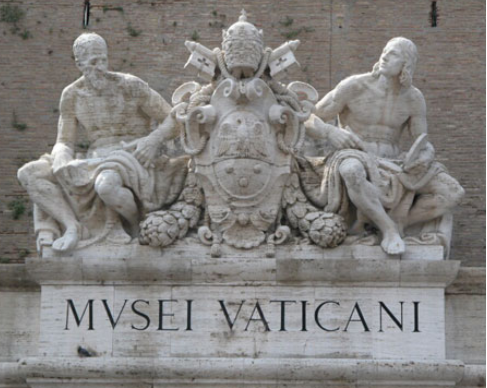Step into the Piazza di San Pietro and you leave Italy.
This is the Vatican State, a tiny enclave in the heart of Rome, from where the
Pope rules the world’s billion-plus Catholics, and whose clout equals
that of any of the world’s heads of state.
Background to the Church
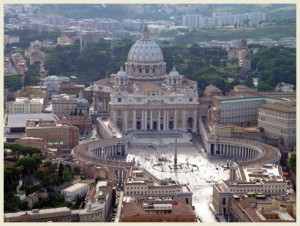 The first head of the Christian church was St Peter the Apostle, traditionally
The first head of the Christian church was St Peter the Apostle, traditionally
thought to have been executed for his faith in the circus built across
the Tiber , on the spot now occupied by the Vatican, by the Emperor Caligula.
Succcessive popesm following Peter’s footsteps, based themselves in Rome,
acquiring land all over central Italy. These territories,
known as the Papal Statesm meant the popes combined their roles as religious
leaders with that of temporal monarchs, and all that entails.
For over a thousand years all went well, but in 1870 Italy was united, the
papacy lost its lands and the pope retreated into self-imposed imprisonment
inside the Vatican. Here, successive pontiffs railed against the Italian state,
declaring illegal and its elections meaningless.
The situation was finally resolved in 1929, when Mussolini signed a treaty of reconciliationm
establishing the Vatican as an independent state, but one whose power
henceforth would be purely spiritual. In return for this, the Vatican got a huge
cash payment, tax-free status and a role as a moral influence in Italian
legislation.
This state of affaris continues today, with modern popes focusing
on the spiritual affairs of their worldwide flock.
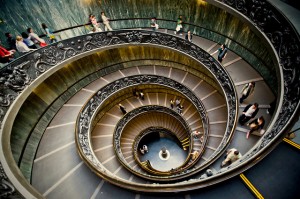
Who and What’s inside the Vatican
Vatican City covers an area of less than half a square kilometre,
most of which is occupied by the Basilica di San Pietro and palace buildings.
These house the museums, and are also home to the Curia, the papal civil
service who are responsible for the day-to-day running of the church.
They’re aided by the papal ambassadors, the nuncios, who represent the
Vatican all over the world; in return, many major powers have their own
ambassador at the Vatican.
The Pope is guarded by his own Swiss Guard and his representative retains observer status at the UN.
The tiny resident population, around 800, shops in the Vatican supermarket,
buys its medicine in the Vatican pharmacy, and uses the Vatican post office
and bank, which issue their own stamps and currency. 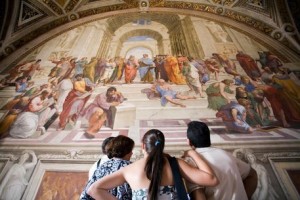
There’s a heliport and railway station, a publishing house, responsible for the
daily newspaper, the Osservatore Romano, and radio and TV station.
A Treasure House of Art
Most visitors come to the Vatican to see the art, a heritage which encompasses
the very fabric of the Vatican buildings as well as the huge collection of painting,
sculpture, manuscripts, reliefs, tapestries and books that’s housed within
the Vatican and Basilica di San Pietro.
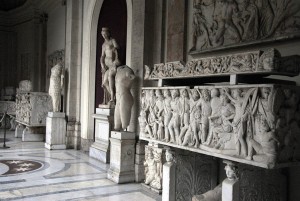
The Basilica is home to some great art, including Michelangelo’s Pietà.
But the wow factor reaches its zenith in the Musei Vaticani (Vatican Museum) , which house
some of the world’s greatest works of art.
